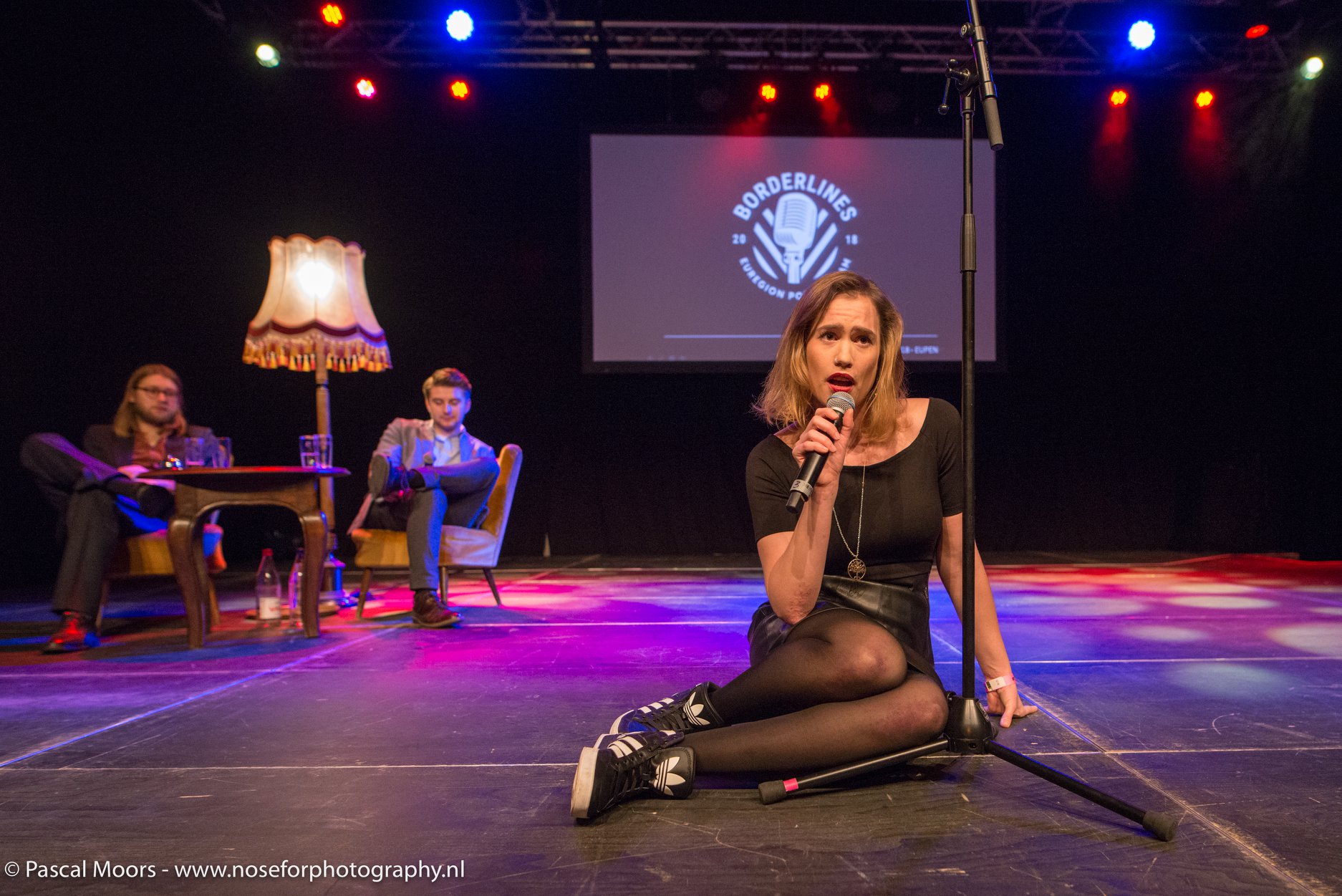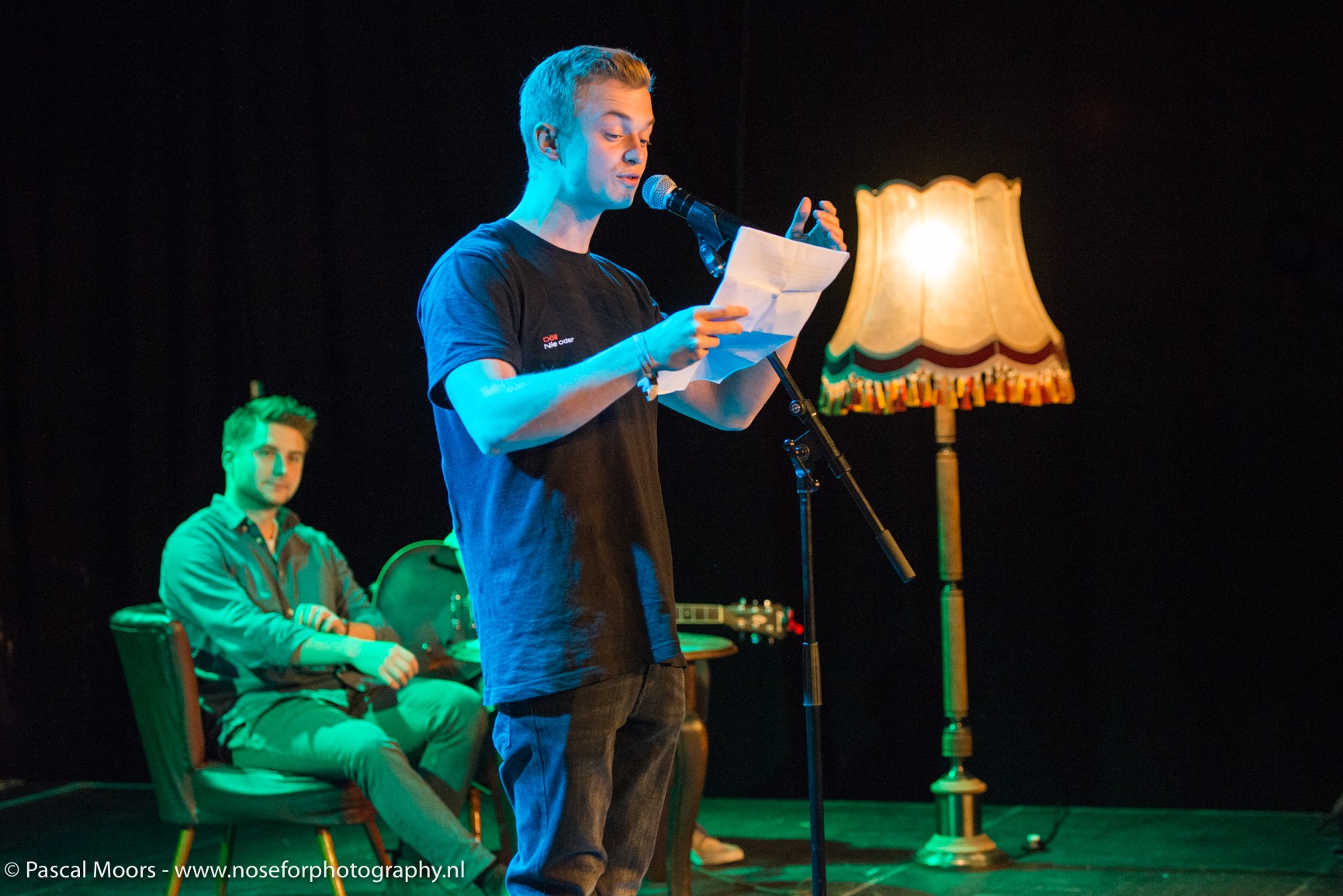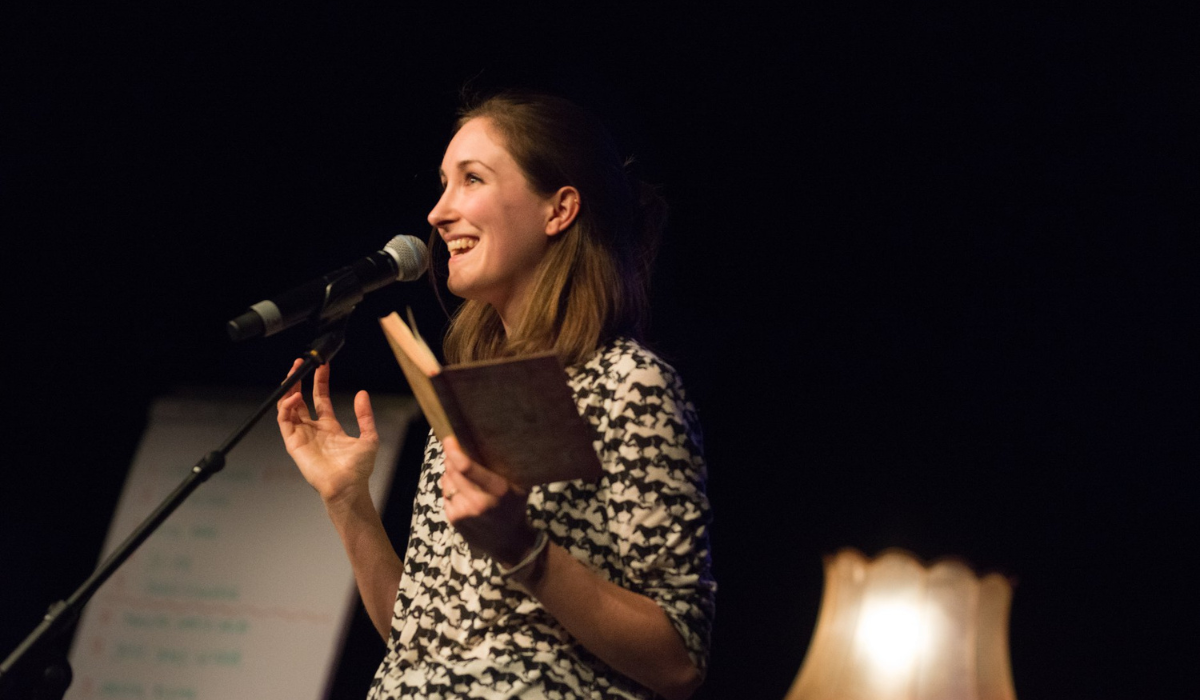A Global Celebration
“It’s important to approach the world poetically. It ensures that you can look at the world with an open mind and also see poetry in everyday things,” says Huntjens.
Since 1999, World Poetry Day has been celebrated annually to promote the reading, writing, publishing, and teaching of poetry worldwide. The day aims to celebrate the unique ability of poetry to capture human experiences, emotions, and perspectives, transcending cultural and linguistic barriers.
Is Poetry still relevant today?
Contrary to popular belief, poetry extends beyond solitary reading. In T.S. Eliot’s 1942 essay “The Music of Poetry” (from his 1957 work “On Poetry and Poems“), he writes:
“We must expect a time to come when poetry will have again to be recalled to speech.”
And that’s exactly what’s happening these days. The increasing popularity of Spoken Word (poetry performed aloud, embodying rhythm, emotion, and storytelling) keeps the art of poetry alive for the younger generation in this modern era.

Above: Poet and writer Merlijn Huntjens. Photo: Gaby Jongenelen
Spoken Word: Breathing new life into poetry
Huntjens is one of the founders of the performance collective PANDA (Poetry and New Dramatic Arts), which aims to make literature and poetry more accessible to a new audience.
Huntjens does not have a personal preference for either stage poetry or written poems, believing that each form possesses its own unique qualities. Nonetheless, he finds spoken word very powerful. According to him, hearing a poem from a stage is almost a different art form than reading a poetry collection.
“When I listen to a poem spoken from a stage, it resonates differently. It’s a distinct experience and adds an entirely new dimension. Sometimes on paper, you miss the poet, you miss the poet’s voice, but in spoken word, you hear the voice.”
According to him, poetry is still alive and well today, especially thanks to the increasing popularity of Spoken Word gatherings.

Embracing the poetry revival
“I see more and more young people interested in poetry,” says Huntjens. “Ten years ago, I felt there was little interest, and one had to travel far for poetry slams, but now with PANDA, we have about 30 young people involved, and we organise regular events that draw full houses. There’s still more and more attention and interest in poetry. Perhaps poetry collections sell poorly, but on stages, on Instagram and other platforms, poetry is more alive than ever.”

“Attend a poetry slam or watch street poetry. With such a vast spectrum and variety in poetry, there’s something to captivate every individual, catering to every taste and preference.”
Poetry in UM’s Special Collections
A first edition copy of Eliot’s “The Music of Poetry” is housed in Maastricht University’s (UM’s) Special Collections. This important collection of literary essays and lectures examines the diverse forms and objectives of poetry by one of the most influential poets of the twentieth century.
UM’s Special Collections houses several poetry collections with poems that are waiting to be recalled to speech. These books are accessible to students, researchers, and members of the public. Many of the books and images in the Special Collections are also available digitally on the Special Collections webpage. Visit the Special Collections webpage for more information.


0 Comments